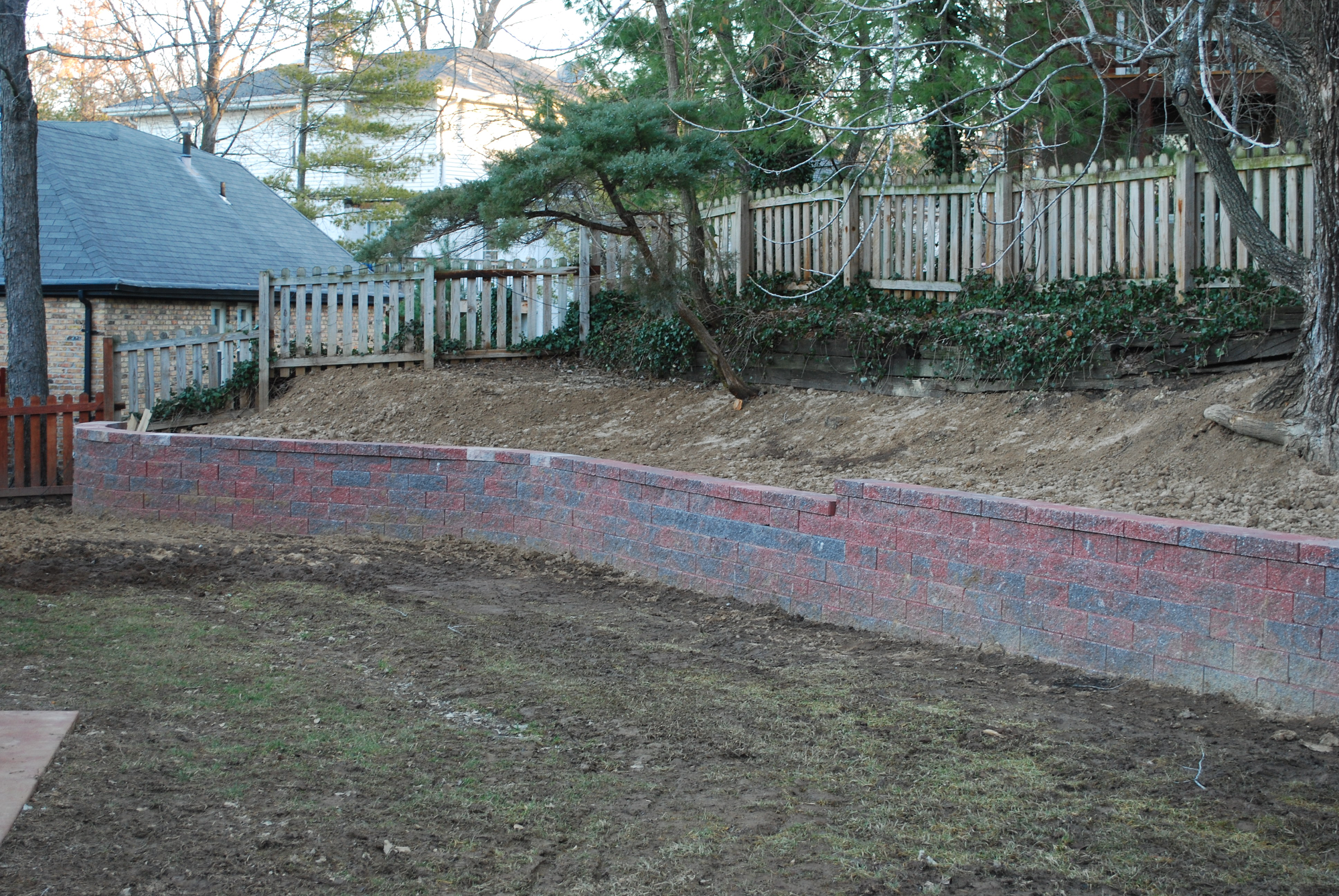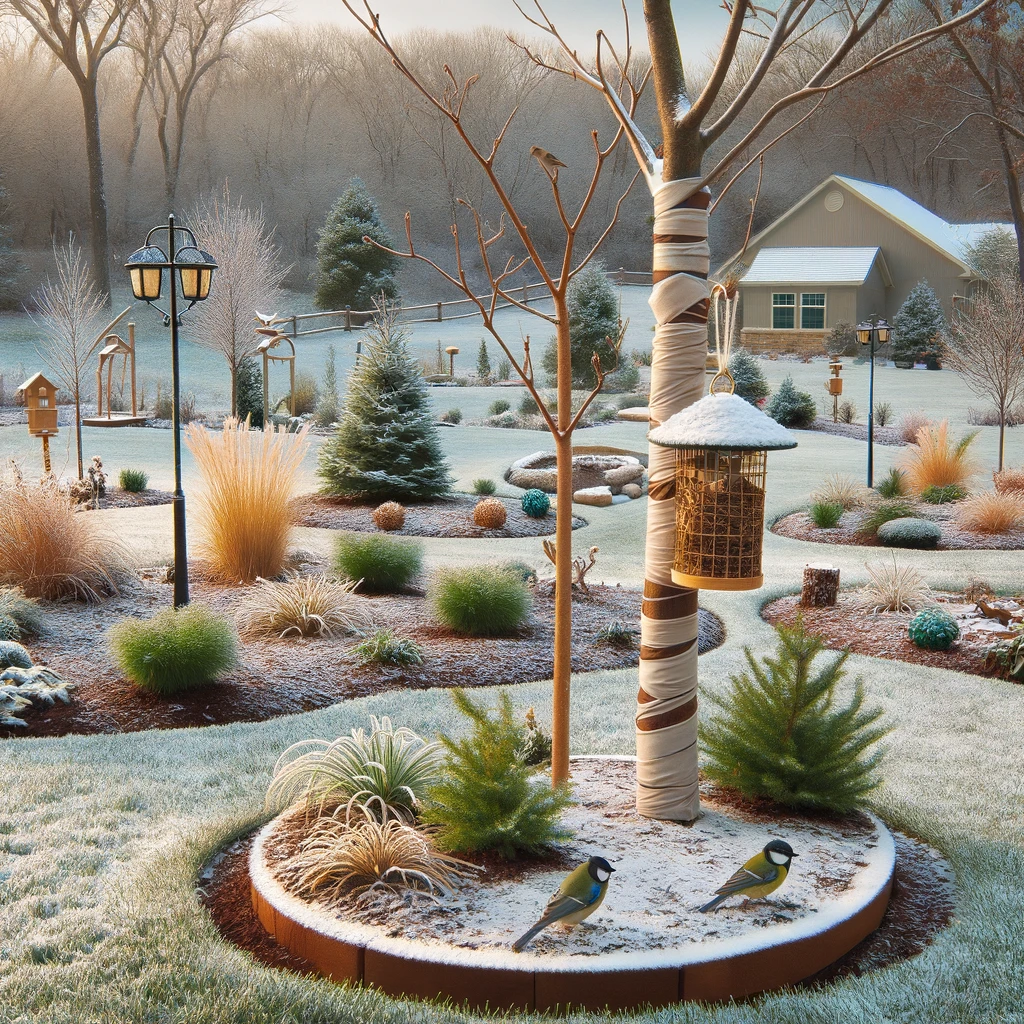To-Do List in Missouri
As the holiday season approaches and the chill of winter sets in, your Missouri garden requires special attention. While December may seem like a time for gardeners to rest, it’s actually a crucial period for preparing your landscape to survive the cold and thrive in the spring. Here’s your comprehensive December landscaping checklist, tailored for Missouri’s unique climate.
1. Winterize Your Lawn and Garden Beds
A. Lawn Care: Your lawn is likely to have entered dormancy by December, but that doesn’t mean you should neglect it. Applying a winter fertilizer can be a critical step in ensuring your lawn has the necessary nutrients to endure the cold. This late-season fertilization, often called “winterizing,” helps promote root growth and ensures a healthier rebound in the spring.
B. Mulching: Mulch acts as a protective blanket for the soil and plant roots. Applying a layer of mulch around the base of trees, shrubs, and garden beds can prevent frost-heave, a phenomenon where the soil repeatedly freezes and thaws, potentially damaging plant roots. Mulch also helps maintain soil moisture during dry winter spells.
2. Tree and Shrub Care
A. Pruning: Winter is an ideal time for pruning many types of deciduous trees and shrubs. It’s easier to see the structure of the plants without leaves, and pruning now can prevent diseases from spreading. However, be cautious with spring-blooming shrubs; pruning them now might remove the upcoming blooms.
B. Wrapping Young Trees: Trees with thin bark, such as maples and young trees, are susceptible to winter damage. Wrapping their trunks with tree guards or burlap can protect them from frost cracks and sunscald, a type of injury caused by fluctuating winter temperatures.
3. Plant Protection
A. Covering Sensitive Plants: Use frost cloth or burlap to cover particularly sensitive plants on nights when a hard freeze is expected. This extra layer can make a significant difference in their survival.
B. Watering: Surprisingly, winter drought is a real concern in Missouri. Water your trees and shrubs, especially evergreens, during prolonged dry periods. They continue to lose moisture throughout the winter and need to be hydrated.
4. Garden Equipment Maintenance
Proper care of your garden tools can extend their life and make your work easier come spring. Clean the soil off shovels and spades, sharpen the blades of pruners and shears, and oil any moving parts. It’s also a good time to repair or replace any damaged equipment.
5. Planning for Spring
A. Garden Design: Utilize the quieter winter months to plan your garden for the next year. Reflect on what worked and what didn’t in the past season, and consider any new plants or design elements you’d like to incorporate.
B. Seed Ordering: Get a head start on spring by ordering seeds now. Some gardeners in Missouri start seeds indoors in late winter, so having your seeds ready can give you a jump on the growing season.
6. Wildlife Care
A. Bird Feeders: Keeping bird feeders full not only helps local wildlife but also brings life to your winter garden. Providing a water source is equally important, as natural sources may be frozen.
B. Perennials: Consider leaving some perennials uncut. They can offer shelter and food for birds and beneficial insects.
7. Hardscape Maintenance
Inspect your patios, walkways, and other hardscape features. Freezing and thawing cycles can cause damage, so it’s crucial to repair any minor issues now to prevent them from worsening.
Conclusion
December may seem like an off-season for gardening, but it’s a pivotal time for ensuring the health and beauty of your landscape throughout winter and into spring. By following this checklist, you’re setting the stage for a vibrant, flourishing garden when warmer weather returns.
Remember, each garden is unique, so tailor these tips to fit the specific needs of your landscape. With a little effort now, you’ll be rewarded with a stunning garden in the months to come.
Sources
For more detailed information on winter gardening and plant care, the University of Missouri Extension offers excellent resources and local advice. Visit their website here for more guidance.


